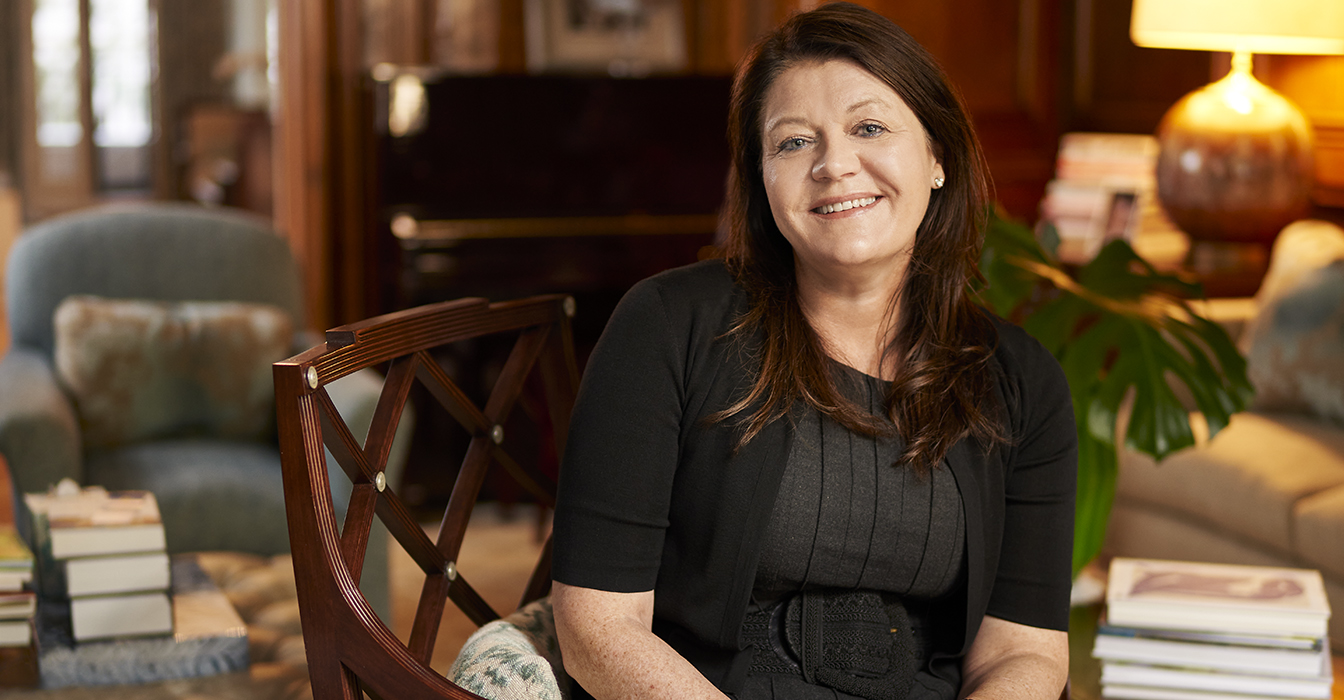The global Covid-19 pandemic is another reminder that not all law firms are created equal or poised to handle dramatic turns in the economy. Perched atop the elite end of the profession, the storied New York institution of Wachtell Lipton Rosen & Katz has, not surprisingly, continued to have its hand in many of the world’s largest and most complex mergers and acquisitions. Another constant within the firm is Jeannemarie O’Brien playing a critical role in the executive-compensation and employee-benefits ends of the firm’s endless stream of transactions. O’Brien remains as excited by the problem-solving component of her deal work as she is grateful that she jumped at the opportunity to join Wachtell 23 years ago.
Lawdragon: Can you describe for our readers the mix of work you do in your practice?
Jeannemarie O’Brien: Eighty percent of what I do is transactions – mergers, acquisitions, spinoffs, asset sales and within that I deal with the executive and broad-based compensation and employee issues. Twenty percent is executive compensation and governance work.
LD: Obviously, WLRK is in a good position at the top of the world’s transactional practices, but what are you seeing in terms of deal flow and workload amidst Covid?
JO: We have remained busy throughout the pandemic, and things have picked up since summer. Recently, we announced PNC’s $11.6B acquisition of BBVA USA Bancshares and Home Depot’s $8B acquisition of HD Supply. I worked on both deals with the help of a wonderful associate, Amanda Toy. We have a group with four associates, one counsel and six partners, so all matters get partner hands-on attention and the associate on the matter and the partner work as a team. Amanda and I were on both of these matters and they happened to be signing on the same day but since we were both so involved with the details and in correspondence with the client, it went seamlessly.
LD: This must be an immensely complicated time for advising companies on executive compensation issues. Can you discuss generally the challenges your clients face and some of the ways you are advising them for moving forward in such uncertainty?
JO: We are big believers in starting with what is right to address the needs and business priorities of the company – retention, incentive, talent management – and then from there evaluate how to do that in a way that makes the most sense when balancing the standards and expectations of proxy advisory firms and institutional shareholders. We do believe that clear disclosure of design that tries to address the rationale for a program or decision can go a long way.
LD: What was your major at Mount Holyoke, and what did you do between there and Fordham? Was there something that pushed you towards law school?
JO: I majored in Political Science and Italian. My dad was a lawyer and I frankly loved school so really wanted to go back. After college, I was a paralegal at Cleary Gottlieb and really liked the pace and excitement of corporate law.
LD: At Fordham, what did you think you would be doing for a career?
JO: I really did not know what kind of law I would do but did know I wanted to stay in New York and that I did not want to be a litigator based on my summer associate experience.
LD: Can you describe your interest in working for Wachtell Lipton and how you ended up there?
JO: I was a summer associate at Dewey Ballantine and the benefits group had two women partners (this was a long time ago) and in hindsight I think that is what in part made me gravitate towards them. In summer of 1997, I worked on a deal opposite Wachtell and the WLRK associate quit that Friday night, we signed the deal on Sunday, the headhunter called Wednesday and I came to Wachtell on July 14, 1997. I feel like I was given the opportunity of a lifetime and was brave enough to take it, for which I am grateful on a daily basis. I can’t tell you what a privilege it is to do the work I do with the colleagues and clients of the firm.
LD: Were there mentors during your time as an associate who were particularly important in the development of your career?
JO: I have worked with incredible people at Wachtell, but I would say Ed Herlihy, Craig Wasserman (who sadly passed away) and Adam Chinn (who left the firm in 2007) were critical to my development and career, as were two now-retired women corporate partners, Pat Vlahakis and Pam Seymon. These partners and everyone at the firm gave me every opportunity to learn and grow and all of the encouragement and support so that eventually I had the confidence to lead matters.
LD: You’ve worked on so many deals. What do you like about it – what keeps you excited about the practice day to day?
JO: I love solving problems and working with others – this is what makes work fun for me. Wachtell Lipton’s corporate lawyers realize that the compensation and social aspects of transactions are critical and the collaboration between our group and the corporate lawyers on a deal is what I think, in part, sets us apart.
LD: Are there any public interest or nonprofit groups you are associated with, or any issues they are facing you can tell us about?
JO: Marty Lipton personally and the firm are very involved with the leadership development organization, Prep for Prep, that offers promising students of color access to a private school education based in New York City. I am on the Board and get tremendous satisfaction from my work with the organization.


